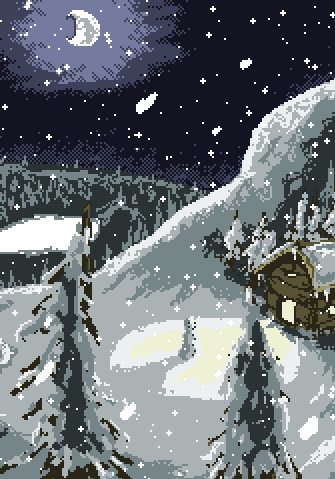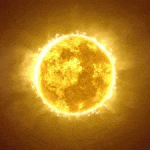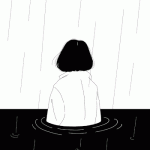Last Updated on November 26, 2019 by Dr.Derek Fhisher
Read on if deeper days and colder times depart you feeling miserable. HFG nutritionist, Juliette Kellow, reveals how changing your diet could help reduce the chances of winter months blues?
 For most people consequently and our exposure to sunshine decreases, now that the clock has made back, also, does a situation of low mood. Based on the NHS, two-million Brits suffer from Seasonal Affective Disorder (UNHAPPY), a type of depression that recurs through the darker months and helps in spring. Natural light seems to manage our interior body clock (or circadian rhythm), which handles critical features such as hunger, digestion, energy, sleeping and disposition. Therefore, even though the actual reason for UNFORTUNATE (or ‘winter depression’) isn’t entirely recognized, professionals believe it truly is related to not enough daylight, which affects the balance of some substances and hormones within the mind.
For most people consequently and our exposure to sunshine decreases, now that the clock has made back, also, does a situation of low mood. Based on the NHS, two-million Brits suffer from Seasonal Affective Disorder (UNHAPPY), a type of depression that recurs through the darker months and helps in spring. Natural light seems to manage our interior body clock (or circadian rhythm), which handles critical features such as hunger, digestion, energy, sleeping and disposition. Therefore, even though the actual reason for UNFORTUNATE (or ‘winter depression’) isn’t entirely recognized, professionals believe it truly is related to not enough daylight, which affects the balance of some substances and hormones within the mind.
The lowering of hours of sunlight is believed to affect levels, specifically, a hormone that helps control sleep habits. When there’s plenty of lighting, mental performance provides melatonin, assisting us feel alert and to get up in the morning. So we become sleepy but when the days shorten and the times attract, the mind creates more. People who have SAD appear to create melatonin in winter than is usual, thus have difficulty getting up and less energy.
Levels of serotonin, a head substance that manages feeling hunger and rest, may also be considered to lessen in winter. So are prone to feel hungry, minimal and exhausted sAD patients usually have lower ranges. Lighting remedy is often used to help sufferers, nevertheless it’s also worth having a look at your diet, give your system the best possibility of battling the blues and to greatly help ease signs. Our experts offer advice – whether you’ve UNHAPPY or perhaps that weary old winter experience.
Reality vs fiction
Can it be treated with a stroll in the sunlight or possibly a spell under a light? HFGis Dr. Dawn Harper sets the file immediately
‘It’sn’t as severe as “real” depression’
UNTRUE
the outward symptoms of MISERABLE resemble these of some other form of depression, although they are generally restricted to the wintertime weeks, thus GPs consider the situation as critically while they would if someone introduced at their clinic with, for example, post natal depression. Nevertheless, before you realise your signs form an everyday structure, it really is generally harder to analyze and might take several rounds.
‘Light therapy might help’
LIKELY LEGITIMATE
The juryis still from whether gentle treatment is truly helpful. The theory implies sitting before or beneath a special lamp (at the very least 10 times happier than the usual normal family light) decreases melatonin production and encourages the manufacturing of serotonin. Research suggests this might support term that is short, particularly when used first thing each morning. Based on the Seasonal Affective Disorder Association (SADA), light treatment works well in up-to 85% of circumstances. Nonetheless, there’s no robust proof it gives any longterm benefits, so you’ll must utilize gentle treatment repeatedly the following year as SAD will probably recur. Nevertheless, several of my clients could estimate their indicators early each fall and feel by utilizing light treatment, they get before them.
‘a fast rush of winter sunlight will stop it’
FAKE
Based On mentalhealth charity Head, being outdoors does not avoid or cure UNHAPPY. However, you should still make the most of light that is sun. Planning outdoors on times that are bright or around midday might help to help relieve your signs.
‘Eating properly and exercising help’
TRUE
Again, they’re not just a remedy, but a lot of people look for a healthy diet and exercise help ease symptoms. Some people with SAD find they’re more vulnerable to other diseases, such as coughs and colds, so it’s imperative to consume a healthier balanced diet to keep the immunity system in top problem. And a heap of research exhibits exercise that is frequent lifts feeling.
What symptoms can I appear out for?
MISERABLE can affect anyone, nonetheless it’s most common in 18 to 30-yearolds, with two times as many ladies enduring as men?
The symptoms resemble these of depression that is standard. They tend to not be rather intense at the start of fall, become worse as sunlight decreases and progresses, then while the nights grow longer relieve in springtime.
Usually, those who have DEPRESSING have problems with irritability, emotions of despair, shame and worthlessness, low-self- a reduced sexdrive, pressure, panic as well as confidence. Bad awareness, issue, sleeping more and feeling unsociable can also be common. Plus lots of people discover they exercise less, crave carb- meals that are loaded and eat more, resulting in gain.
The severity of symptoms ranges from persontoperson – many people say they eat and rest more in winter and have a tendency to experience low (generally known as the wintertime blues or sub-syndromal SAD), but for some individuals, symptoms could be much more significant and also have an important influence on morning-to-day existence. Generally, an individual who encounters three or two straight winters of signs for example these is considered to be experiencing SAD.
Can vitamin D support with DEPRESSING?

Plus we dish at the top 10 temper-improving foods.
Various studies have demonstrated a connection between depression and vitamin D deficiency. Researchers supporting a 2013 meta-analysis discovered that research participants with depression had low vitamin D levels. The study found that, statistically, individuals with vitamin D were in a higher risk of depression.
The researchers feel that because vitamin D is important to brain function, nutrient amounts that are inadequate may play a part in depression and other psychological disorders. A previous 2005 studyTrusted Source identified vitamin D receptors in exactly the very same regions of the brain linked to depression.





No Comments Yet